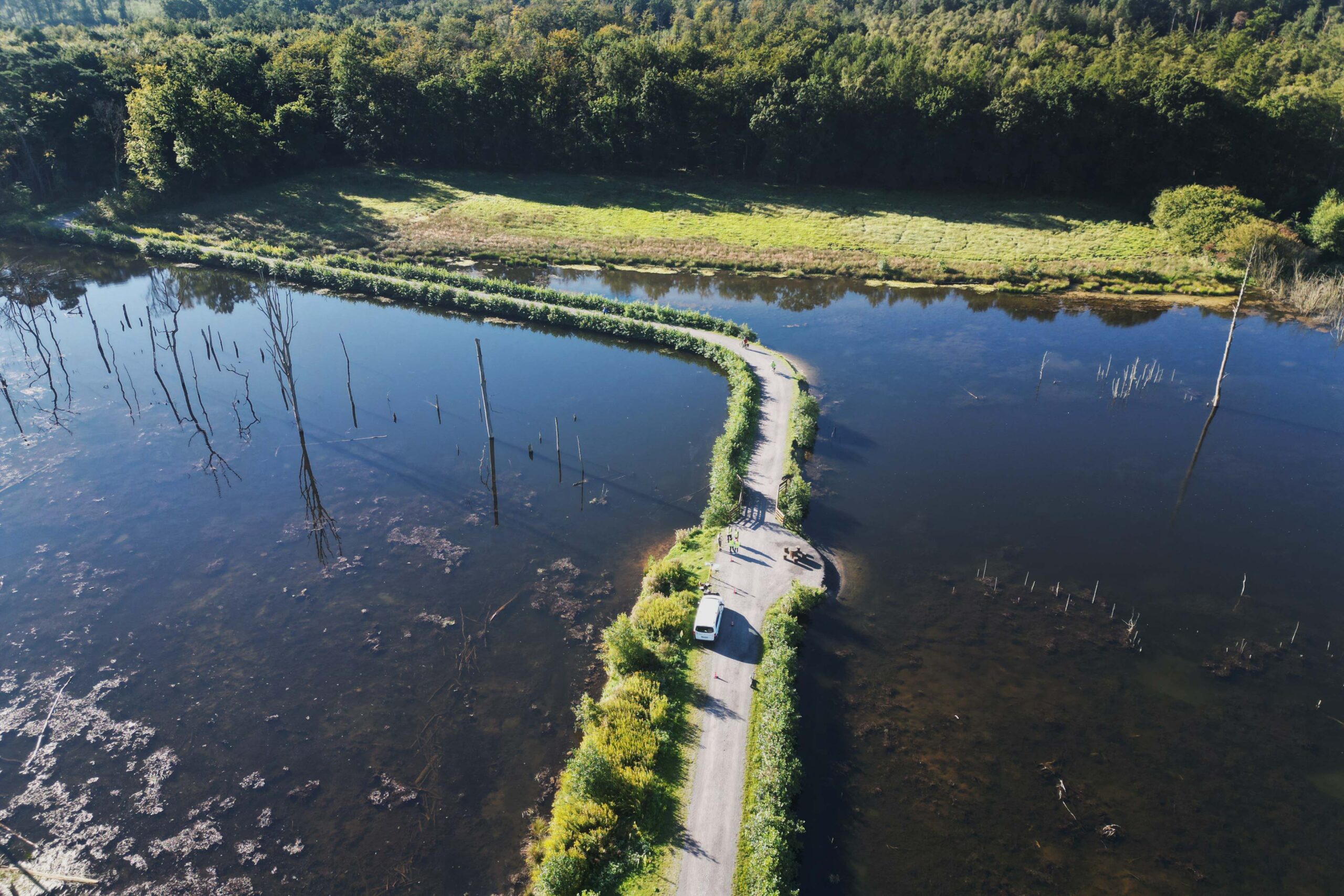WaterSense
How can the georesource water be used more sustainably in the Ruhr region?
Blue-green infrastructure in the form of bodies of water and green spaces plays a major role for the city climate and local recreation in urban areas. The Ruhr area has a special characteristic: the region's water balance is strongly influenced by the perpetual tasks of the coal mining industry, particularly through water management in polder areas. Polders are low-lying areas of land that were caused by coal mining and have to be continuously drained. In the face of climate change and the associated extreme weather conditions such as heat waves and heavy rainfall, it is important to use water efficiently in urban areas. In order to find out how this can be achieved in the Ruhr region, the researchers in the WaterSense project are conducting a baseline study on the management of water as a georesource in urban areas in the context of polder management.

In the WaterSense project, the FZN’s experts are analyzing how water management in polder areas, such as the Kirchheller Heide in Bottrop shown here, can be designed in a sustainable and efficient way. ©THGA/Marcin Pawlik
The scientists want to explore the potential that polder maintenance offers for sustainable water management in the region. To this end, they are analyzing correlations between hydro(geo)logical and climatological data from the former mining region. Up to one billion cubic meters of water are pumped into the polder sites of the Ruhr area and the left Lower Rhine every year. The experts' aim is to find out how to optimize the use of this water and thus improve the region's climate resilience.
They also seek to identify other stakeholders who are dealing with the georesource water in polder areas. The joint findings will serve as the basis for an application for a large-scale project to develop strategic and sustainable utilization concepts for the water of polder areas in former mining districts.
The RAG-Stiftung funds the project for one year.
Project objectives
- Analyzing hydro(geo)logical and climatological data to assess the utilization potential of polder areas
- Analyzing the influence of climate change on the georesource water in the Ruhr area
- Developing concepts for the sustainable use of water as a georesource in the context of polder management in former mining regions
- Identifying potential stakeholders
- Compiling the findings for the application for a large-scale follow-up project, in the course of which a strategy for the sustainable development of the water supply in former mining regions is to be devised
Contact

Dr.-Ing. Sebastian Westermann
Technische Hochschule Georg Agricola, University
Herner Street 45
44787 Bochum
Building 2, room 203
Phone 0234 968 3275
Mail sebastian.westermann@thga.de

Karla Capraro
Technische Hochschule Georg Agricola, University
Herner Street 45
44787 Bochum
Building 2, room 205
Phone 0234 968 3344
Mail karla.capraro@thga.de

Marina Jomaa
Technische Hochschule Georg Agricola, University
Herner Street 45
44787 Bochum
Building 2, room 205
Phone 0234 968 3980
Mail marina.jomaa@thga.de


